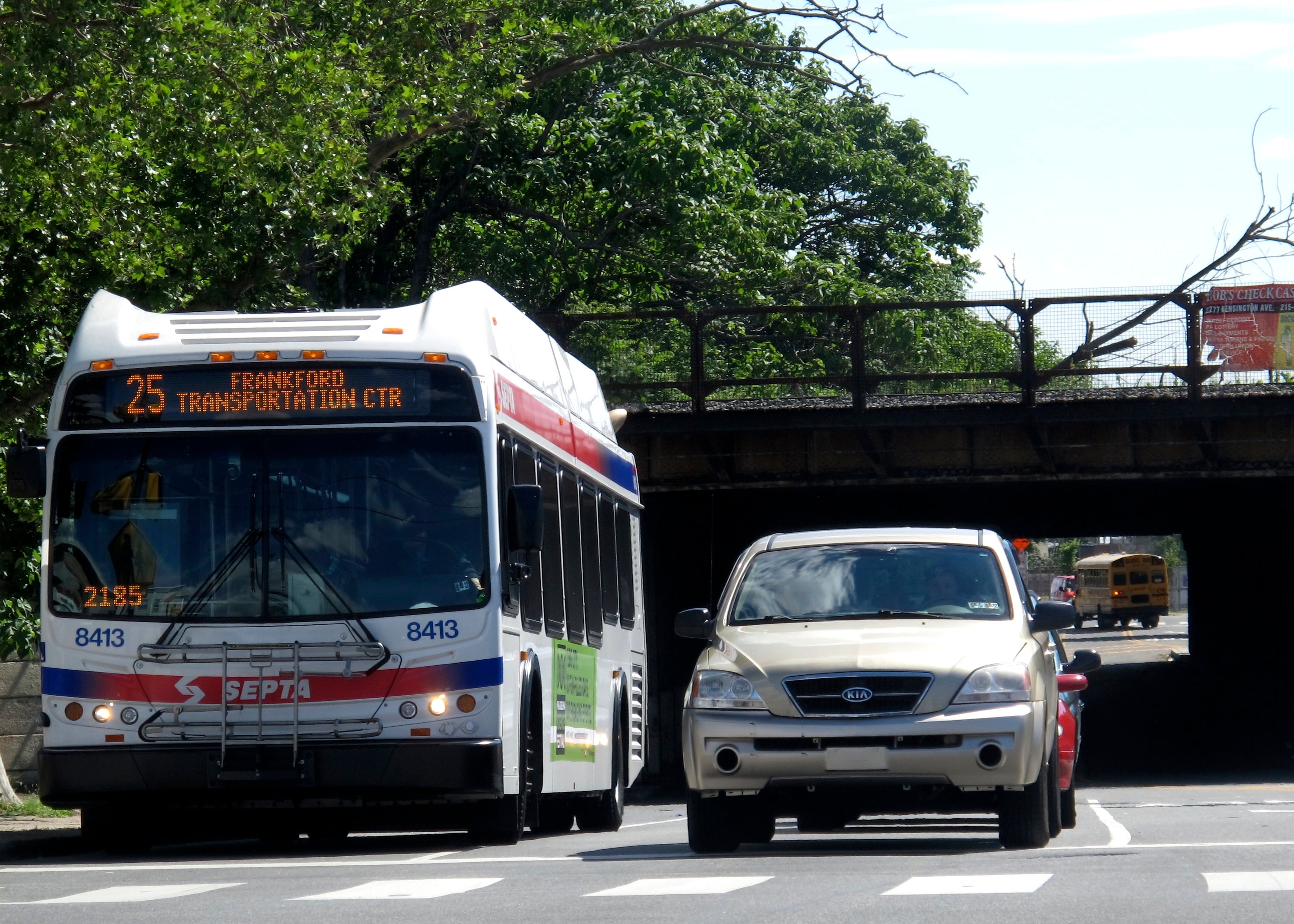UPDATE: SEPTA union authorizes potential strike November 1 that could last through Election Day

UPDATED 10/16/16: SEPTA’s largest union, Transport Workers Union Local 234 (TWU 234), voted Sunday to authorize a strike starting November 1st if a new agreement cannot be negotiated before then. The authorization vote was unanimous, said union president Willie Brown. Members of the union left the union hall after the vote in high spirits, some chanting “Two Thirty-Four” and others telling reporters that a strike through election day meant “leverage”. When asked if he thought there would be a deal before November 1st, Brown said: “No, I don’t. But we’ll be in negotiations the next two weeks trying to get it done.”
The outcome of Sunday’s vote could affect another vote: The 2016 Presidential election. Unless SEPTA’s 5,185 bus drivers, subway and trolley operators, and cashiers get a new deal to replace the two-year agreement signed in 2014, TWU 234 will strike and will stay on strike through the November 8th election if necessary, says union president Willie Brown.
“My members voted for me to do a job—I’m gonna do that job,” says Brown. “When we talk about 12:01, 11/1, we will be on strike if we don’t get a contract.”
Brown rejected the possibility of suspending the strike on Election Day if a deal with SEPTA couldn’t be reached by then. “There will be no extension,” says Brown. “Either we have a contract, or we don’t.”
“Once we’re on strike, we are on strike.”
The last time TWU 234 struck was in 2009, when Brown called a surprise walkout that began at 3 A.M. on Election Day. That was an off-year election where races for district attorney and judges topped the ballot, far smaller stakes than this year’s Presidential race where Philadelphia turnout will be critical for Hillary Clinton, who the Transport Workers Union of America has endorsed. The 2009 strike lasted six days.
Brown was reelected union President by a comfortable margin earlier this month, signaling that membership backs his aggressive negotiation stance and will authorize a potential strike. “I wholeheartedly expect to get a yes vote,” says Brown.
SEPTA spokesperson Carla Showell-Lee downplayed the strike authorization. “Taking a strike vote in advance of contract expiration is not out of the ordinary,” she wrote in an e-mailed statement. “We are working to bargain an agreement in the best interest of our employees, riders and the public. Naturally, we hope an agreement can be reached.”
But Brown says little progress on the negotiations have been made since they began back in July. “Listen: We can’t even agree on a hotel to do the negotiations at. That’s how the negotiations are going. They’re not moving at all.”
Brown blames the deadlock on SEPTA’s outside counsel, Ballard Spahr, accusing its lawyers of dragging things out just to run up its billable hours. TWU 234 General Counsel Bruce Bodner agreed with Brown’s assessment about Ballard Spahr, arguing that they, not the union, are to blame for the brinkmanship. But then he took things a step further: “We’re talking about a guiding ideology that’s at play here, which is that management is the superior class, and that the people driving the bus are inferior.” And that approach, Bodner said, means management refuses to treat union employees equitably.
The union came to the negotiating table with 90 demands, ranging from smaller issues like longer bathroom breaks for bus drivers to larger issues like management’s proposal to adopt a less generous health care plan. By far, the biggest issue is pensions. Pension benefits for SEPTA employees — both union and non-union — are calculated in part on the person’s salary when they retire. For TWU 234 workers, that calculation is capped at $50,000, regardless of how much more they might earn. The union wants the cap to be raised and set equal to the salary of a “Technician”, the highest pay-grade level for union employees. Technicians currently earn $70,000 a year. Both union and non-union employees contribute 3.5 percent of their salaries to the pension fund.
If TWU 234 strikes, it would shut down all of SEPTA’s services except for Regional Rail. Regional Rail employees are represented by a different union, the Brotherhood of Locomotive Engineers and Trainmen, which signed a two-year agreement with SEPTA earlier this year.
When asked about the risk of a strike, Mayor Jim Kenney said he is “watching these negotiations closely” and urged “both sides to continue their open dialogue.”
In an e-mailed statement, Governor Tom Wolf’s spokesman Jeff Sheridan said: “Tens of thousands of Pennsylvania residents rely on SEPTA to travel each day, and Governor Wolf urges both sides to come together and reach a compromise to avoid a strike.”
WHYY is your source for fact-based, in-depth journalism and information. As a nonprofit organization, we rely on financial support from readers like you. Please give today.



